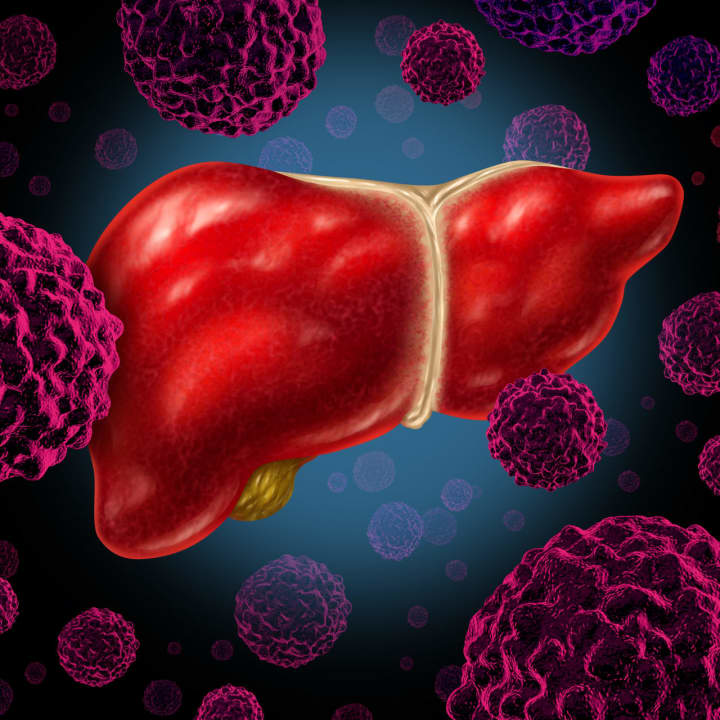Primary liver cancer (hepatocellular carcinoma) starts in the liver, but it can also develop in the cells that line bile ducts in the liver (cholangiocarcinoma). The liver is also a common site for metastases, which is cancer that has spread from other sites, such as the colon, lung or pancreas.
The most common causes of liver cancer are chronic hepatitis B and C infection and cirrhosis, which is liver scarring often caused by chronic hepatitis or alcohol abuse. Because of their increased risk, people with these diseases may be monitored with imaging or blood tests to detect cancer in its earlier, more curable stages.
While much remains to be learned about how to effectively treat liver tumors, doctors have developed therapies that enable people with liver cancer and liver metastases to live longer. Treatment options may include:
- Surgery: If the tumor is small, surgeons may remove part of the liver. Liver tissue regenerates and will grow back to replace the lost tissue.
- Transplantation: Some people with early-stage liver cancer may be candidates for a liver transplant.
- Chemoembolization: Chemotherapy can be given directly into a tumor through a narrow tube into the main artery in the liver. The chemotherapy is combined with a substance that helps to block the small artery that provides blood flow to the tumor.
- Radiofrequency ablation: This image-guided treatment for small liver tumors uses a probe inserted into the tumor to heat and destroy cancer cells.
- Radioembolization: Tiny spheres of a radioactive substance are delivered to the tumor via the main artery in the liver. The radiation then kills cancer cells.
- Targeted therapy: Sorafenib is an oral anticancer medication used to treat liver cancer. It inhibits the development of the blood vessels that tumors need to grow and spread.
- Immunotherapy: Nivolumab has been approved for the treatment of primary liver cancer for patients who have previously been treated with sorafenib.
- Radiation therapy: Some patients benefit from radiation treatments directed to the liver tumor.
The treatment of primary liver cancer and liver metastases is complex and requires the skills of a multidisciplinary team—such as that found at NewYork-Presbyterian. There, liver cancer experts offer the latest treatments as well as clinical trials of investigational therapies.
NewYork-Presbyterian (NYP) Cancer Centers provide high-quality, comprehensive cancer care at convenient locations throughout the New York metropolitan area, Westchester and the Lower Hudson Valley. NYP Cancer Centers provide a comprehensive program of cancer services in a state-of-the-art, comfortable environment. Board certified, disease-focused medical oncologists are part of the multidisciplinary team of cancer specialists available to provide each patient with an individualized plan of care. To find a location, visit nyp.org/cancerlocations.
NewYork-Presbyterian is one of the largest and most comprehensive hospitals in the nation, ranked New York’s No. 1 hospital for the 16th consecutive year, and No. 6 in the United States, according to U.S. News & World Report. Affiliated with two academic medical colleges – Columbia University College of Physicians and Surgeons and Weill Cornell Medicine, NewYork-Presbyterian brings together internationally recognized researchers and clinicians to develop and implement the latest approaches for prevention, diagnosis and treatment. The Herbert Irving Comprehensive Cancer Center at NewYork-Presbyterian/Columbia University Medical Center is one of only three NCI-designated comprehensive cancer centers in New York State. NewYork-Presbyterian provides comprehensive cancer care at all of our locations across the New York Metro area, including Westchester County and the Hudson Valley. Learn more at nyp.org/cancer.



